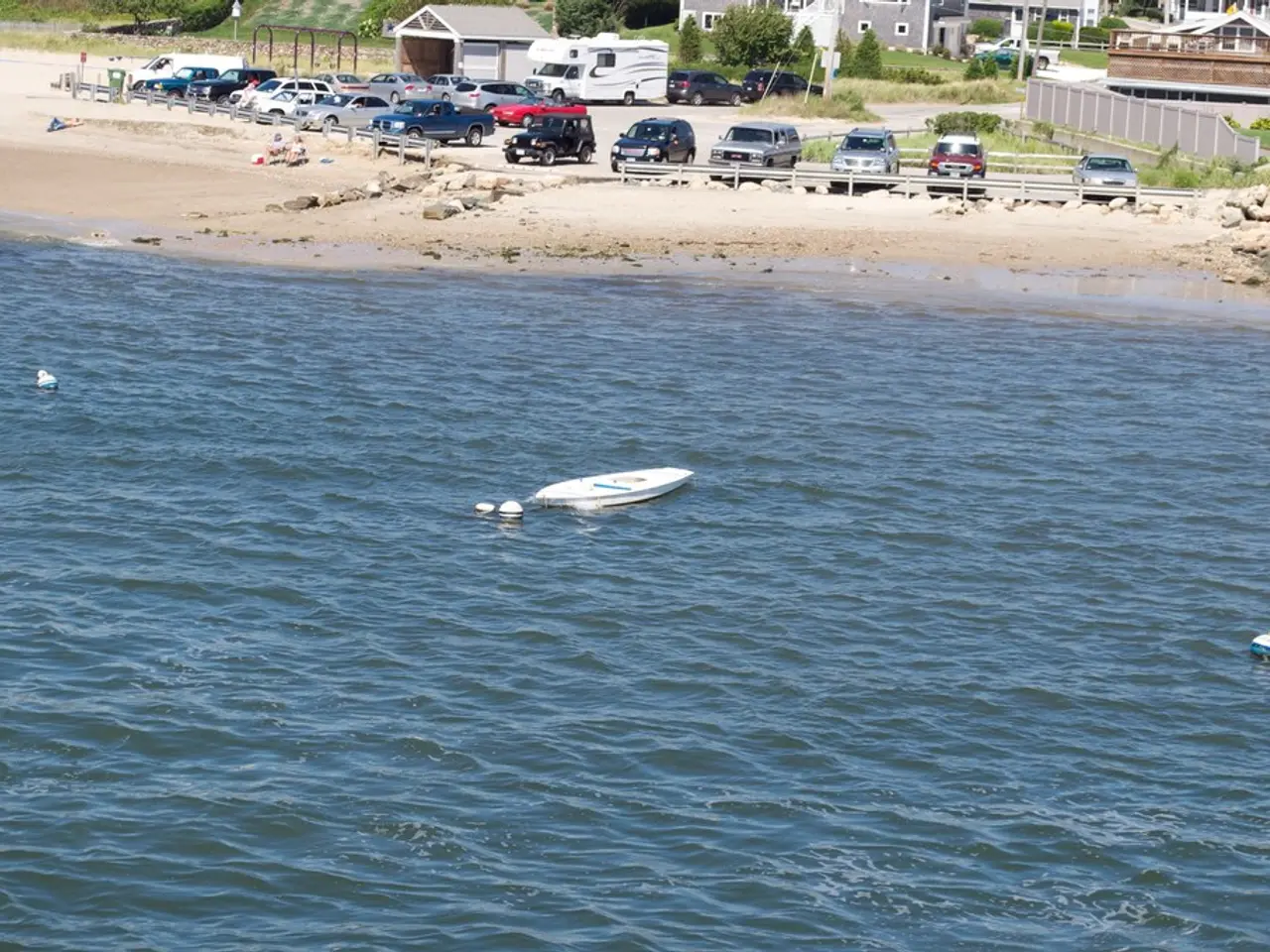Oil Spill Perpetrator Identified
The ongoing search for the responsible party behind the 2019 Brazilian oil spill, the largest environmental disaster in the country's coastal history, has yet to yield concrete results. Despite various investigations, none of the available documents specifically identify the culprit or detail the spill's environmental consequences.
The Federal Police have launched an investigation into ships that left Venezuela and sailed along the Brazilian coast, with the Greek vessel Bouboulina being a prime suspect. However, Delta Tankers, the company responsible for the management of the Bouboulina, denies the charge, claiming there is no evidence of any oil-related operations.
The oil spill, first discovered in Paraíba, Brazil on August 30, 2019, spread over 3 thousand kilometers, reaching beaches, mangroves, rivers, and protected marine areas such as the Abrolhos National Park. The spill caused long-lasting damage to marine ecosystems, fishing communities, and tourism.
In response, the Brazilian government established a Special Commission of Inquiry (CPI) to investigate the origin of the oil and the federal government's responses to this environmental crime. The Navy, in particular, removed 500 kilograms of oil from the region. Yet, Navy Vice Admiral Marcelo Francisco Campos admitted at a public hearing sponsored by the CPI that the origin of the oil is still unknown.
The spill's impact extended to more than 1,004 localities in the northeast and southeast of Brazil. Indigenous peoples in the affected areas, such as the Pataxó in the Bahian cities Caraíva and Corumbau, have joined local fishermen to remove oil from their region without government-provided medical assistance or protection, leading to health issues.
The government's initial actions were too late, with the National Contingency Plan being triggered 38 days after the first oil slick was sighted. This delay likely exacerbated the damage to the environment and the health of those involved in the cleanup efforts. A 35-year old woman named Gláucia de Lima, who lives on the outskirts of Cabo de Santo Agostinho, in Pernambuco, was among those who handled the cleanup despite the health risks.
Researchers suggest that the oil remains adrift in the sea and may resurface due to sea surf. Institute of Marine Sciences researcher Rivelino Cavalcante warns that the oil may continue to pose a threat to the environment for an undetermined period. Furthermore, Fiocruz, a Brazilian health research organisation, states that all people directly involved with the cleanup must be monitored for at least 10 years due to the benzene present in the oil.
As the investigation continues, it is clear that the 2019 Brazilian oil spill has had a devastating impact on the country's environment and its people. Additional targeted sources would be required for a precise answer regarding the responsible party and the ongoing environmental impact of the spill.
- The magazine's latest issue features an in-depth article on the ongoing investigation into the 2019 Brazilian oil spill, a significant environmental disaster.
- In the community, concerns about the impact of the oil spill on marine life and fishing industries are growing, fueling the need for environmental science research.
- The science community continues to study the effects of climate-change on oil spills and the environment, as the 2019 spill adds to the urgent need for sustainable living practices.
- As the oil industry comes under scrutiny, the environmental division of the industry is working on implementing more eco-friendly practices to reduce the risk of future disasters.
- The finance sector is also playing a role in addressing the aftermath of the oil spill, with investments being made in the restoration of the affected environments.
- The energy industry is looking into alternative sources of energy to reduce the reliance on oil and gas, as the 2019 spill highlights the risks of current practices.
- In the realm of lifestyle, choices are being made to reduce the carbon footprint, with a focus on sustainable dining options in the food-and-drink industry.
- The family dynamics in the affected areas have been disrupted due to the loss of income from fishing and tourism, leading to difficult conversations around financial planning.
- Personal finance experts are advising those affected by the oil spill to seek out resources and guidance for managing their finances during this challenging time.
- Real-estate developers are offering discounts and support to families whose homes were impacted, with a focus on long-term partnerships to promote sustainable living.
- Data and cloud computing are being used in the investigation to try and identify the responsible party, as well as to monitor the ongoing environmental impact of the spill.
- In the realm of education and self-development, courses on environmental science and sustainable living are becoming more popular, as people search for ways to make a difference.
- Career development in the field of personal growth and relationships is particularly valuable during times of crisis, as people look for support and guidance in navigating the challenges they face.




